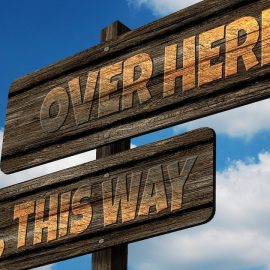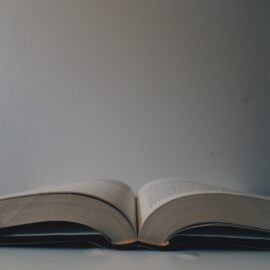

This article is an excerpt from the Shortform book guide to "Poor Charlie's Almanack" by Charles T. Munger. Shortform has the world's best summaries and analyses of books you should be reading.
Like this article? Sign up for a free trial here .
What is the availability bias? How do you curb the availability heuristic bias?
The availability bias is the tendency to over-inflate the value of information that is recently available and ignore other important data that would have helped in making a better decision. You can curb this tendency by always using a methodical decision-making process.
Read on to learn more about the availability bias.
What It Is
Your brain works with what’s available to you and doesn’t think as hard about what’s missing. This applies broadly to facts, memories, and concepts (you don’t think about what evidence you’re missing), and emotions (you don’t think hard about whether it’s wise to feel a different emotion).
Why It Evolved
The availability bias evolved because we have a limited capacity to remember, recall, and think, so we jump to what’s easily available. (Shortform note: Possibly, availability bias helps to increase weight on the most recent places you found food, and not the place that worked a year ago.)
How It Can Be Harmful
By using only what’s recently available, the availability bias causes you to ignore other important data that would have helped you make a better decision.
The availability bias amplifies other biases, mainly in misjudging the small amount of information that is available to you:
- Stress influence: You have to make a decision fast, and the easiest information to recall is what’s available.
- Contrast misreaction: The most recent change and the most visible change is emphasized.
- Social proof: When you’re in a crowd, you get a massive cognitive input of seeing crowds of many humans behaving together. This crowds out independent thought and makes it harder to see that there are alternatives.
Examples of the Availability Bias
- Economists tend to support arguments that produce reams of data, rather than fuzzier concepts that are true but hard to prove. Thus, it took decades for the concepts in behavioral economics to arise, even though they were fairly intuitive in retrospect.
- “When I’m not near the girl I love, I love the girl I’m near.”
- When giving a speech, providing vivid imagery helps persuade your listeners by providing an available image and memory.
Antidotes
Seek information that is not readily available to you—find a new type of person to talk to, or invert your beliefs and read about perspectives you disagree with.
You can curb the availability bias by using a methodical decision-making process: Put all the evidence you have available in front of you, then weigh them appropriately.
- Extra-vivid and memorable information should be de-emphasized.
- Disconfirming evidence should be emphasized, because you have a tendency to ignore it (per inconsistency avoidance tendency).
- “An idea or a fact is not worth more merely because it is easily available to you.”

———End of Preview———
Like what you just read? Read the rest of the world's best book summary and analysis of Charles T. Munger's "Poor Charlie's Almanack" at Shortform .
Here's what you'll find in our full Poor Charlie's Almanack summary :
- A collection of Charlie Munger’s best advice given over 30 years
- Why you need to know what you’re good at and what you’re bad at to make decisions
- Descriptions of the 25 psychological biases that distort how you see the world






